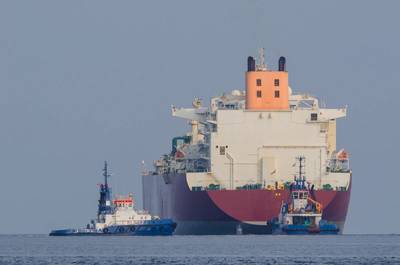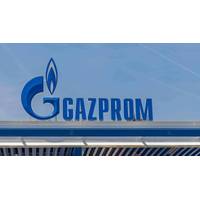Asian liquefied natural gas (LNG) spot prices jumped this week in reaction to volatile price spikes on European gas markets and ongoing demand from the region's major consumers.
Spot prices for January delivery hit $10.50 per mmBtu, 40 cents above last week, with February prices seeing similar levels.
In a tumultuous week, European gas prices gyrated wildly following a flurry of major pipeline and production outages coinciding with high demand and freezing weather.
The rally began after the Forties oil and gas pipeline system shut for emergency repairs and gained strength as a fire broke out at Austria's Baumgarten gas hub, choking Russian gas deliveries to Italy.
The Forties outage briefly lifted Brent crude oil prices to a three-year high of $65 a barrel.
Although Europe's rally proved short-lived and prices fell near to pre-outage levels by the end of the week, the move nevertheless lifted Asian spot LNG benchmarks, maintaining a premium to attract spot LNG supply.
On the demand side, there was continued interest for spot deliveries in February and March from Japanese, South Korean and Chinese importers, traders said.
Pakistan LNG awarded two of four tender cargoes for February delivery on Friday, a trade source said.
The country's GasPort terminal, into which the cargoes are due to arrive, has still not resumed operations following a gas leak last week. The terminal was to try to begin injecting regasified LNG into the onshore pipeline system earlier this week.
Indian Oil Corp closed a tender for a February LNG cargo.
Two portfolio players were said to be bidding to supply Japan in February and March, respectively, at prices of around $10.50 to $10 per mmBtu level.
Angola LNG launched two sale tenders. The first cargo for sale loads on Dec. 24-25 and the second on Dec. 26, traders said.
Oman LNG launched a tender to sell a Jan. 13-14 cargo.
The first LNG cargo exported from the Yamal project in Russia's Arctic is set to arrive at the UK's Isle of Grain import terminal on Dec. 28 aboard the ice-class Christoph de Margerie tanker.
However, traders say the cargo is likely to be reloaded onto a new tanker and sold to a Mediterranean market, where gas prices tend to reach premiums to those in the UK.
(By Oleg Vukmanovic; Editing by David Evans)




